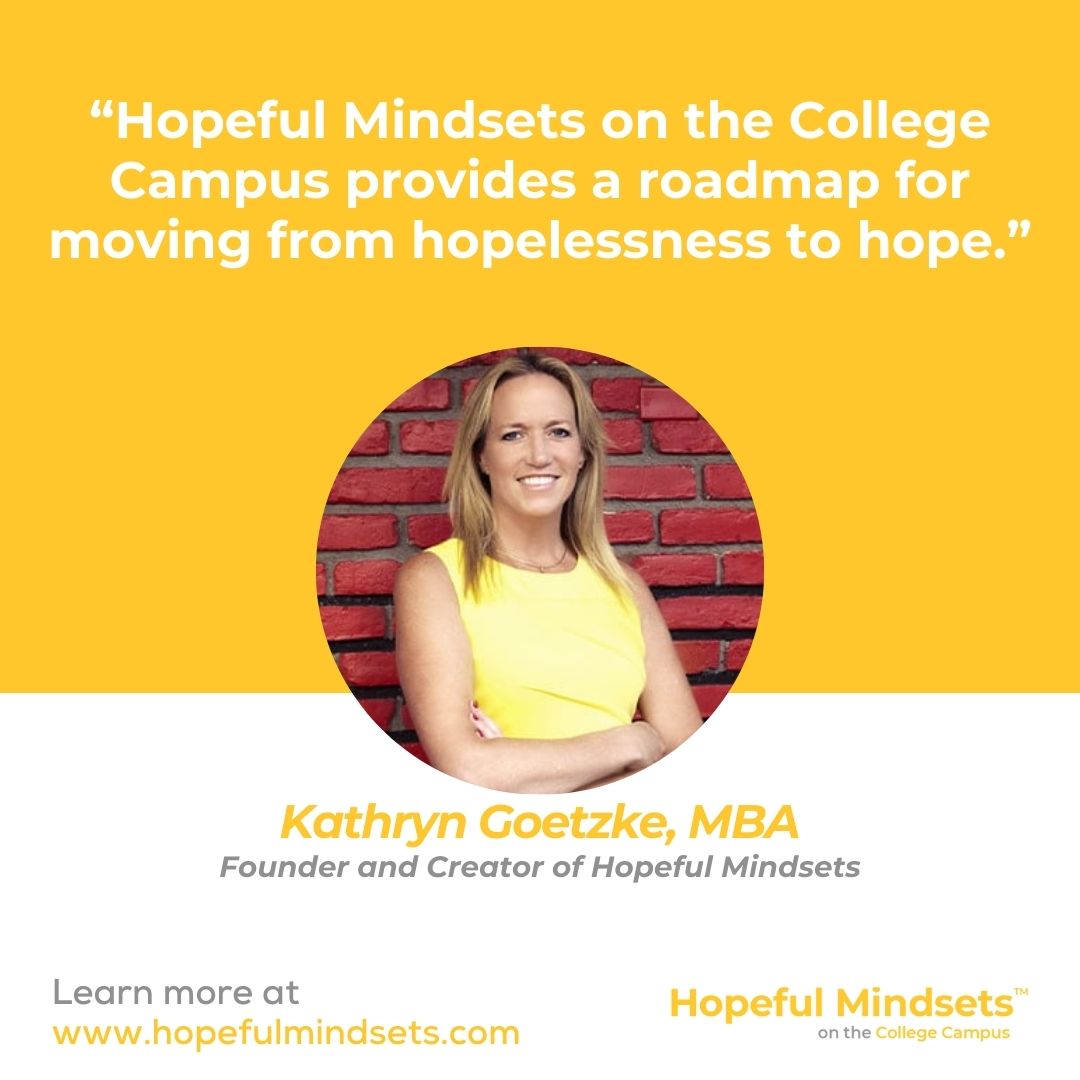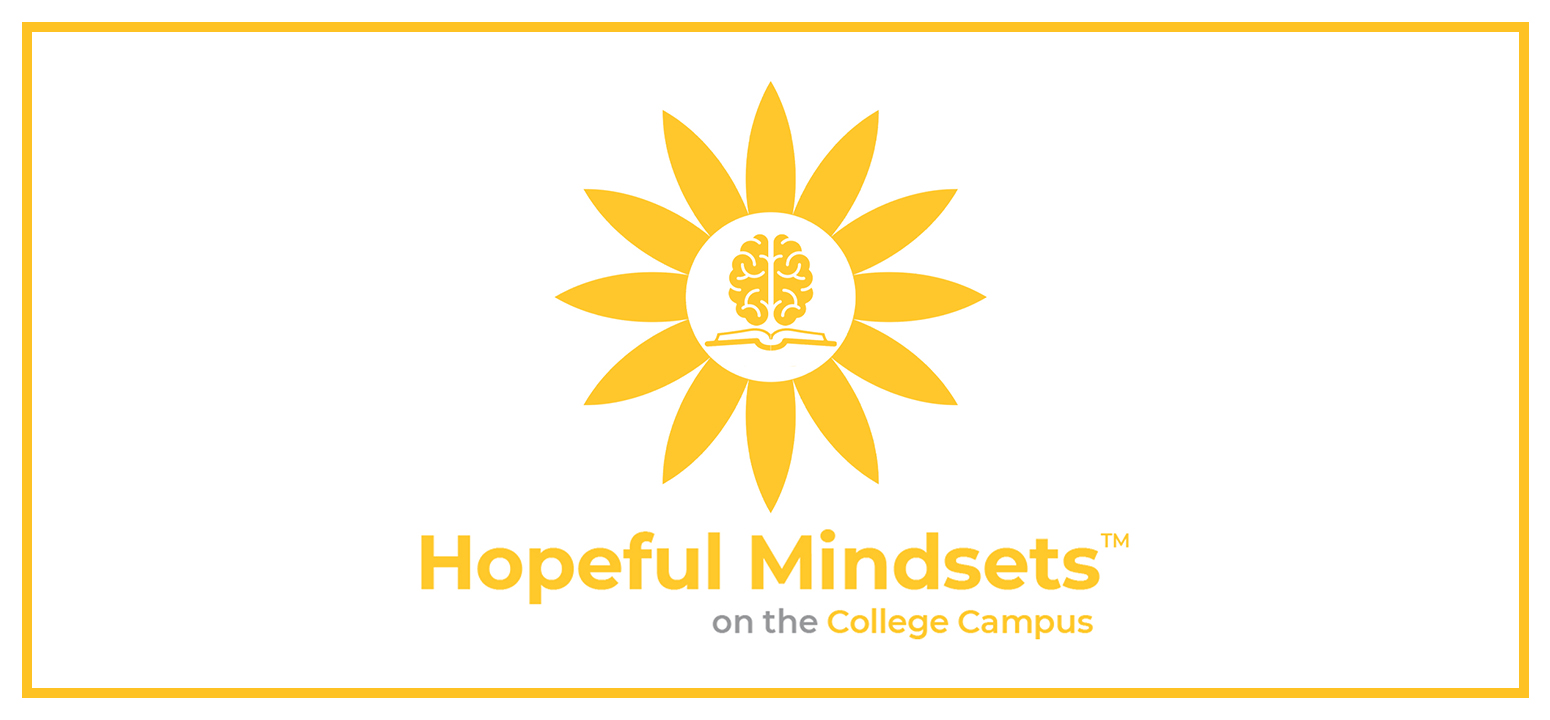As hopelessness rises to an all time high for college students returning to class this year, Hopeful Mindsets™ on the College Campus has been developed to address this global issue by offering lessons on the Science of Hope from renowned mental health and wellness experts around the world.

Hopeful Mindsets™ on the College Campus, a new course and proactive initiative designed to teach the “how-to” of hope, addresses the emotional and psychological stressors that college students are facing today. Vikram Patel, PhD, MB, BS, the Pershing Square Professor of Global Health, and crucial contributor to the course, regards hope as, ”one of the central features of what I would consider positive mental health or well-being”. Hopeful Mindsets provides support to students at a time where, according to a 2020 study completed by the JED Foundation, 63% of students reported worsened mental health since before the pandemic.
“Hope is teachable, it’s learnable. I think we’ve learned that hope is something that people can embrace, that there are strategies for learning about hope, and for modifying how one approaches life to create a more hopeful mindset,” said Dr. Myron Belfer, MD, MPA, Professor of Psychiatry in the Department of Psychiatry, Children’s Hospital Boston.
said Dr. Myron Belfer, MD, MPA, Professor of Psychiatry in the Department of Psychiatry, Children’s Hospital Boston.
Hopeful Mindsets teaches a ten-lesson course to students and educators on how to proactively manage stress, channel emotions in a positive way, take inspired actions through goal setting, create strong and nourishing networks, eliminate challenges, and effectively create personal change for the better. Hopeful Mindsets provides education-based support to college students by utilizing the knowledge of renowned mental health and wellness experts from top academic institutions and organizations around the world. The course introduces crucial hope skills known as the Five Keys of Hope using the SHINE acronym:
- Stress Skills: how to proactively manage the stress response
- Happiness Habits: taking action to foster positive feelings
- Inspired Actions: setting meaningful goals to nurture passion and purpose
- Nourishing Networks: building social connections that cultivate hope
- Eliminating Challenges: how to overcome worry, rumination, and limiting beliefs
According to research done by the American Psychiatric Association, in 2021 nearly half of our college students—over 47%—have record levels of clinical depression and anxiety. “We need to ensure students have support, resources, and tools to maintain mental wellbeing, not just now, but always,” said Dr. Mitchell, PhD, Professor of Journalism at UNR and Coordinator of Recruitment and Retention at the University of Nevada, Reno, who was instrumental in bringing Hopeful Mindsets to the university’s campus. “Teaching students hopefulness can help offset some of the struggles they are facing as a result of the pandemic, but also the pressures of college life they endure. Hopeful Mindsets is a great addition to core courses to help students learn to lead more positive lives.”
“Hopelessness, that feeling of despair and sense of helplessness, is a normal part of life and something all of us experience. Yet we are never given a roadmap for how to get from hopelessness to hope,” says Kathryn Goetzke, Founder of iFred and Creator of Hopeful Mindsets. “It astounds me, as hopelessness is predictive of things like weapon carrying on school property, addiction, suicide, self-harm, violence, and early death, as well as a key symptom of anxiety and depression. How do we expect to solve any of these major challenges without teaching the ‘how-to’ of hope? That is what we initially set out to do with Hopeful Minds, a free global program for the K-6 population, and now with our new program Hopeful Mindsets for the College Campus.”
Hopeful Mindsets on the College Campus can be completed individually, with a friend, in a class, or as part of a campus-wide initiative. It is available for institutions to purchase for their entire campus, and is available to individuals for a $25 donation to iFred. Scholarships are also available for individuals.
- To sign up for the course today, visit www.hopefulmindsets.com
- To implement Hopeful Mindsets on your college campus, you can contact iFred at [email protected]
You can learn more about Hopeful Mindsets on the College Campus at www.hopefulmindsets.com.
For more resources on hope check out:
- The International Foundation for Research and Education on Depression, or iFred website: https://www.ifred.org
- The Hope Matrix Podcast: https://thehopematrix.com
- The Biggest Little Book About Hope: https://kathryngoetzke.com/downloads/the-biggest-little-book-about-hope-by-kathryn-goetzke/
- Hopeful Minds, a free curriculum teaching hope to grades K-6:https://hopefulminds.org
Hopeful Cities, iFred’s initiative to operationalize hope in cities around the world:https://hopefulcities.org.


